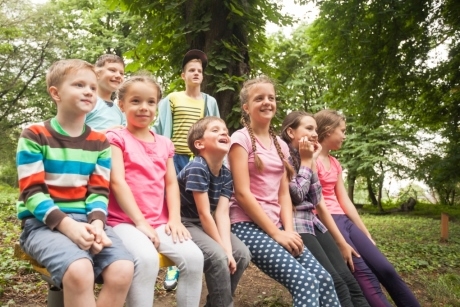To mark National Experience Week this week, we take a look at some of the most treasured experiences school pupils can take away from school travel.

School trips, whether local or abroad, can offer extremely valuable lessons and skills to pupils who, if not for schools, may not be offered these sorts of opportunities elsewhere. Besides the educational benefits that a school trip brings, there are even more experiences and advantages that LOtC can provide.
Explore new horizons
School travel is all about broadening children’s horizons and introducing them to new things whether this be new activities or new locations. By exposing children to a world outside their usual, they are able to embrace new challenges and overcome many hurdles that they are faced in the ‘real-world’.
As well as this, visiting a destination that offers a different landscape to that of the ones pupils are used to at school, can also give pupils an introduction to Geography. There are many providers that offer residentials such as YHA and WST, plus tour operators such as Select School Travel who can provide itineraries abroad.
New relationships
Residentials and school trips are known for taking pupils out of their comfort zone and allowing them to get to know one another better as well as get to know their self and own limitations. Not only do friendships between pupils improve, with many teachers STO has spoken to over the years claiming this, but also the relationship between staff and pupils is known to benefit.
In our February Primary edition of STO, Beth McKenzie, headteacher from Upland Primary School, told us more about the relationships built between pupils and teachers. She said: “It completely changes, you become mum. They see you differently – they see you in your pyjamas, and they laugh. They see that you’re human. It’s about sharing the time together.”
.jpg)
Pictured: Residentials can teach students new skills.
Time away from social media
In the February Secondary edition of STO we spoke to Dominic Brister a leader of parallel curriculum, who told us that that he regularly takes his pupils on trips where he bans the use of mobile phones and technology. By doing so he claims his pupils learn valuable lessons and gain much better communication skills.
He said: “They get to learn communication and how to speak to others, and how to conflict manage. When there are arguments on their phones, they become keyboard warriors, but in real life, without a phone they have to deal with it face to face. They learn to deal with scenarios where someone gives them a challenge and they can’t google it or ask Siri.”
Changing perspectives
Learning in the classroom of course has its own values, however, when pupils are taken outside of the school environment they are able to apply the knowledge they have learnt already to real life situations. For example, a visit to the Bank of England Museum will allow them to engage with money and problem solving that they have learnt in Maths lessons. A trip to a theme park such as Drayton Manor Theme park or Alton Towers Resort, might have them looking at the engineering and physics behind rollercoasters.
Overcoming fears
A residential is a fantastic way to introduce students to new activities and tasks that would not be so readily available at home or school, such as rock climbing, abseiling and kayaking. Often on a school trip, pupils have to overcome fears and challenge themselves to do something they might not normally attempt.
Dan Sayers, headteacher of Independent School St Hilda’s Primary School, told STO in a recent interview: “The holistic benefits of school trips are immense, especially where culture, adventure, practical and physical activities are involved. We try to encompass all of these in our trips and ensure that they are always valuable”.
To find more school trip inspiration, take a read of a latest e-mag.










